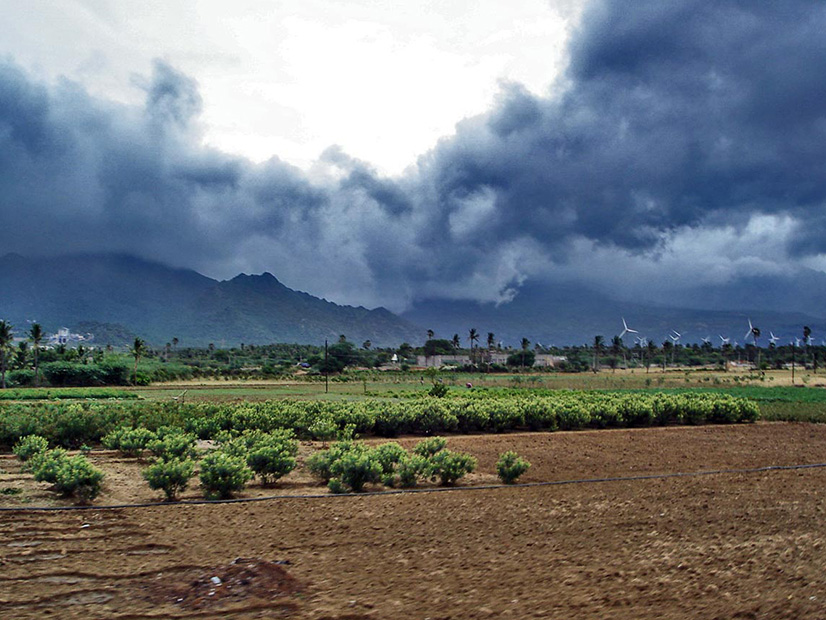
Global warming has delayed the onset of tropical monsoon seasons by four days, which has a ripple effect on agriculture in India, parts of Africa and other regions at the same latitudes.
That is the conclusion of a three-year study by the Pacific Northwest National Laboratory in Richland, Wash. The research was published in June in the journal Nature Climate Change.
Part of the origin of the study traces back to PNNL co-researcher Fengfei Song, whose father, a rice farmer in southern China, pays close attention to the monsoon rains and winds in preparing his crops. “Tropical rain is very important in tropical agriculture,” Song said in an interview. PNNL atmospheric scientist Ruby Leung co-authored the study.
Much of the study focused on analyzing temperature data, which is plentiful, along with global precipitation records, which are not. It also looked at increases in greenhouse gases and the reduction in human produced aerosols. Variations in ocean surface temperatures also played into the calculations. The study covers 1979 to 2019.
The researchers concluded that the increase in temperatures and the reductions in aerosols have led to a four-day delay in the start of the monsoon or rainy seasons in the Sahel region of Africa, southern India, southeastern Asia and islands along those latitudes. The study also extrapolated that the monsoon seasons could be delayed by an additional five days over northern tropical lands and by another eight days over the Sahel by 2100. The Sahel is the semi-arid part of Africa just south of the Sahara Desert. It extends from Senegal on the Atlantic Ocean coast to Sudan.
Global warming and the reduction of aerosols have triggered a complicated domino effect that results in delays in monsoons and planting seasons, the study concluded.
Greenhouse gases warm the Earth’s surface, which sends more water vapor into the atmosphere. That translates to more heat needed to heat the atmosphere when spring shifts into summer, meaning it will take longer for rainfall to form.
Meanwhile, human-created aerosols from burning fossil fuels reflect sunlight, cooling the atmosphere and combating the warming generated by greenhouse gases. But as the use of aerosols declines, that cooling is lost — which speeds up warming the atmosphere, which in turn delays rainfalls.
The next step for the researchers is to quantify the importance and effects of delaying monsoon rainfalls to farming, Song said.
